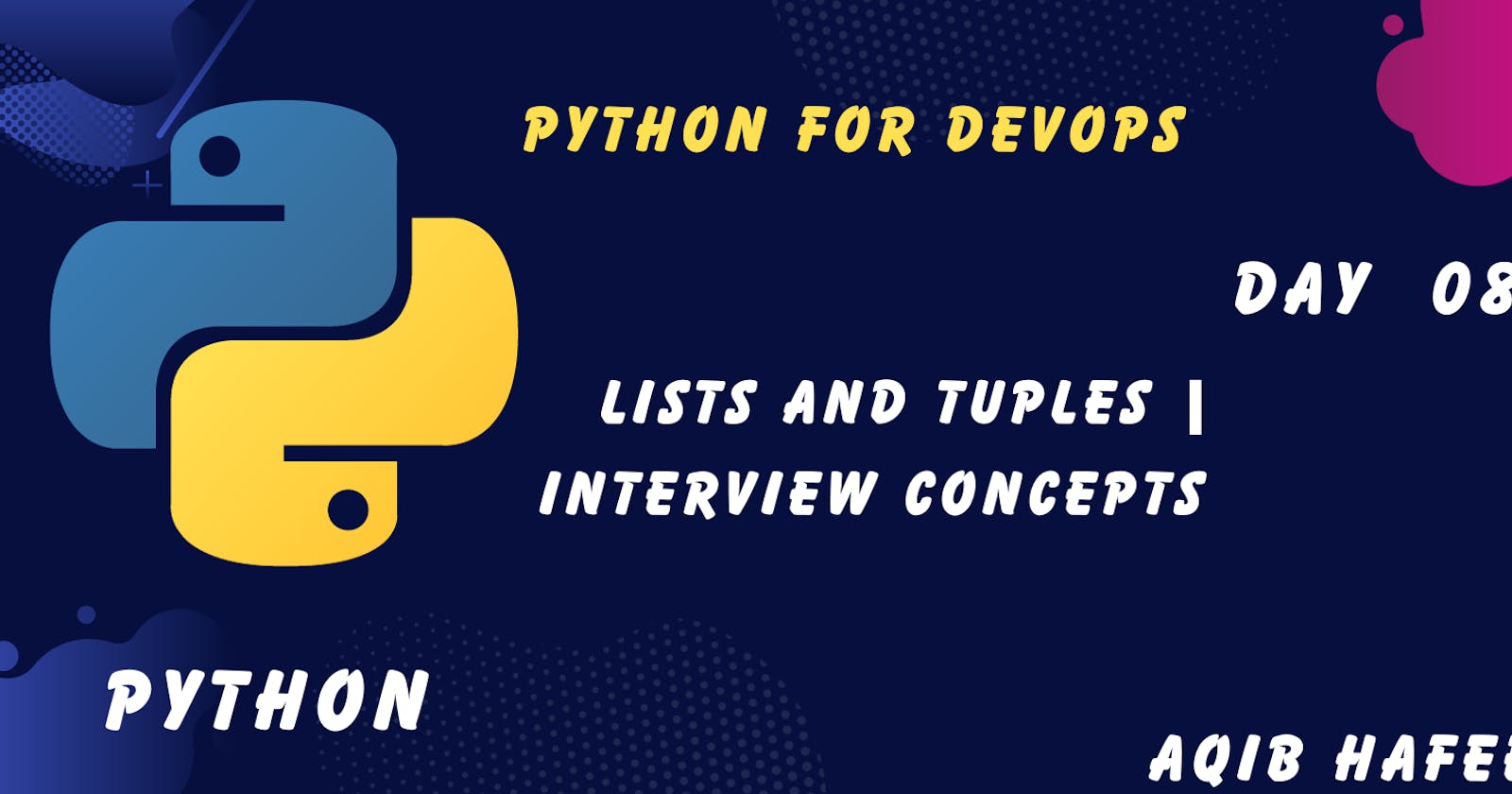Table of contents
Python is a versatile and powerful programming language that's widely used in the field of DevOps. Whether you're managing infrastructure, automating deployments, or building automation scripts, Python is an excellent choice. Lists and tuples are fundamental data structures in Python, and understanding how to work with them is essential for any DevOps engineer.
Lists in Python
A list is a dynamic array that can store a collection of items. Here's how you can create and work with lists in Python:
# Creating a list
fruits = ["apple", "banana", "cherry"]
# Accessing elements
print(fruits[0]) # Output: "apple"
# Modifying a list
fruits.append("orange")
fruits[1] = "grape"
# Iterating through a list
for fruit in fruits:
print(fruit)

Lists are mutable, which means you can add, remove, or modify elements in them. This makes them great for managing dynamic data, such as server lists or environment configurations.
Tuples in Python
A tuple is similar to a list, but it's immutable, meaning you can't change its elements once defined. Here's how you can create and work with tuples:
# Creating a tuple
colors = ("red", "green", "blue")
# Accessing elements
print(colors[1]) # Output: "green"
# Unpacking a tuple
r, g, b = colors
print(f"R: {r}, G: {g}, B: {b}")
Tuples are often used for storing data that shouldn't change, such as configuration settings or coordinates.

Using Lists and Tuples in DevOps
In the world of DevOps, lists and tuples find various use cases:
Configuration Management: You can use lists or tuples to store server configurations, environment variables, or deployment settings.
Deployment: Lists can help manage software deployments to different servers or environments.
Inventory Management: Lists or tuples can store inventory data, including server names, IP addresses, and status.
Task Automation: DevOps scripts often involve iterating through lists to perform tasks on multiple servers or resources.
Python's versatility and simplicity make it an excellent choice for DevOps tasks, and its data structures, including lists and tuples, play a vital role in managing and manipulating data effectively.
In summary, lists and tuples are essential data structures in Python, particularly for DevOps professionals. Understanding how to use them is crucial for effectively managing infrastructure, automating deployments, and building automation scripts in a DevOps environment.
